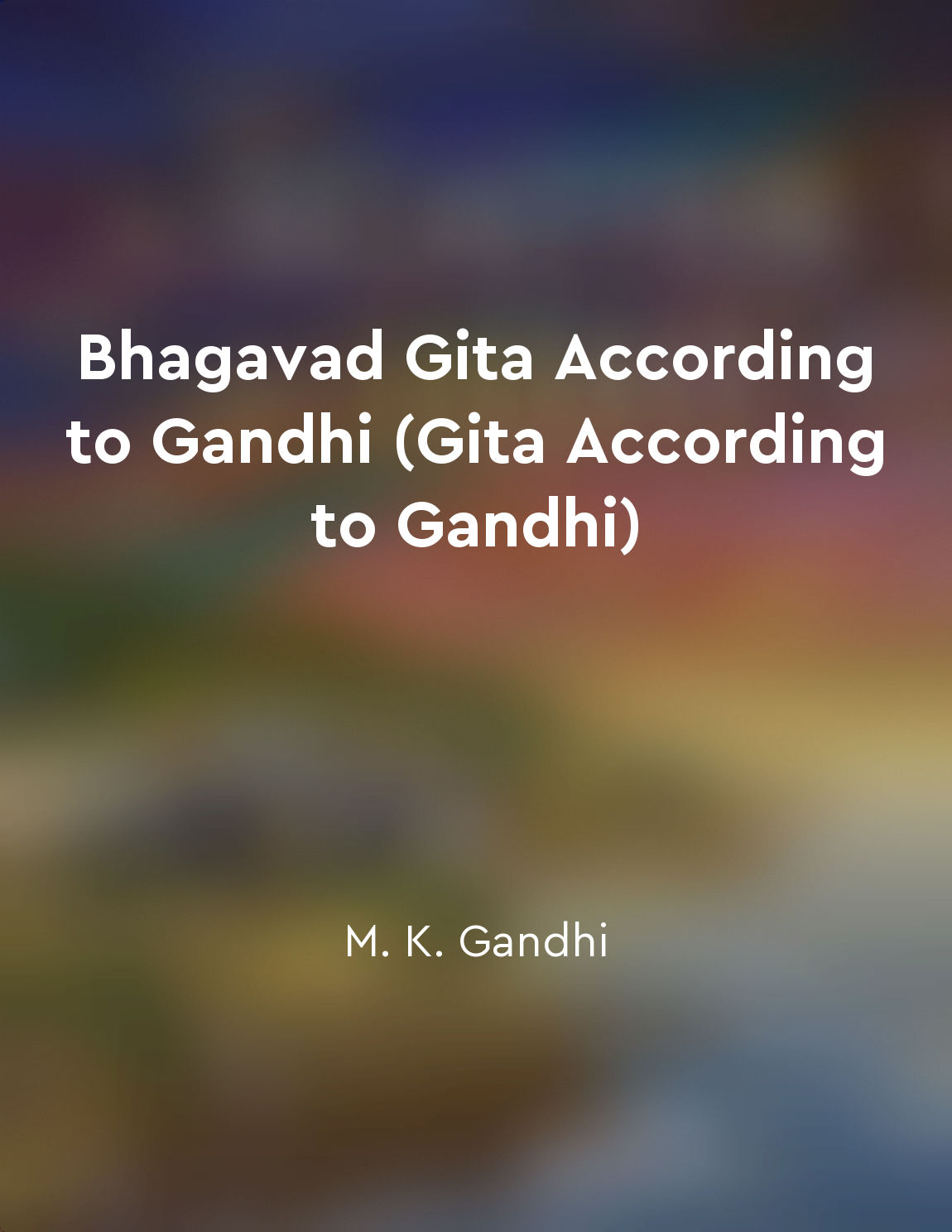Embrace selfless action from "summary" of Bhagavad Gita According to Gandhi (Gita According to Gandhi) by M. K. Gandhi
The idea of selfless action is a central theme in the Bhagavad Gita. It emphasizes the importance of performing one's duties without being attached to the results. This concept is crucial in understanding the true nature of action and its significance in our lives. According to the Gita, by embracing selfless action, one can attain true freedom and spiritual fulfillment. Selfless action involves acting without the desire for personal gain or recognition. It requires a mindset of humility and service, where one's actions are guided by a sense of duty and righteousness rather than selfish motives. By focusing on the act itself rather than the outcome, one can transcend the ego and connect with a higher purpose. In the Gita, Lord Krishna teaches Arjuna the importance of selfless action on the battlefield. He explains that it is better to do one's own duty imperfectly than to do someone else's duty perfectly. By performing one's duties with dedication and sincerity, one can cultivate a sense of detachment and equanimity, regardless of success or failure. Embracing selfless action allows individuals to break free from the cycle of karma and attain spiritual liberation. It enables one to act in harmony with the divine will and contribute to the greater good of society. By letting go of personal desires and attachments, one can experience a deep sense of peace and contentment.- Selfless action is not just about performing deeds without expectation of reward, but about aligning oneself with the universal principles of righteousness and compassion. It is a path to self-transformation and enlightenment, where one's actions become a reflection of one's innermost values and beliefs. By embodying selfless action in our daily lives, we can strive towards a more harmonious and fulfilling existence.
Similar Posts
Embrace challenges as opportunities for growth
The Bhagavad Gita teaches us to see challenges as opportunities for growth. Every challenge we face in life is an opportunity f...

The nature of the self
The self is unborn, eternal, imperishable, and immutable. It is not destroyed when the body is destroyed. It is not limited by ...
Jeevan ke upsarg aur downs ki prerna lein
In our lives, we often face various challenges and obstacles that can be seen as either positives or negatives. These ups and d...
The importance of controlling the mind and senses is highlighted
The Bhagavad Gita emphasizes the significance of controlling the mind and senses. This theme runs throughout the text, urging i...
Let go of your ego to connect with the divine
The concept of letting go of one's ego to connect with the divine is a key teaching in the Shrimad Bhagwat Geeta. It emphasizes...
The nature of the self
The self is the essence of who we are, beyond the physical body and the mind. It is our true nature, our innermost being that i...

Live a life of righteousness and virtue
To live a life of righteousness and virtue is to follow the path of duty and selflessness, as outlined in the Bhagavad Gita. Ac...

Achieving spiritual perfection through dedication and devotion
The path of achieving spiritual perfection through dedication and devotion involves unwavering commitment and wholehearted surr...

Respect for all living beings
Respecting all living beings is an essential principle emphasized in the Bhagavad-Gita. According to the teachings presented in...

The nature of the self and the eternal soul
The Bhagavad Gita explains the nature of the self and the eternal soul in a profound manner. According to the teachings of Lord...

